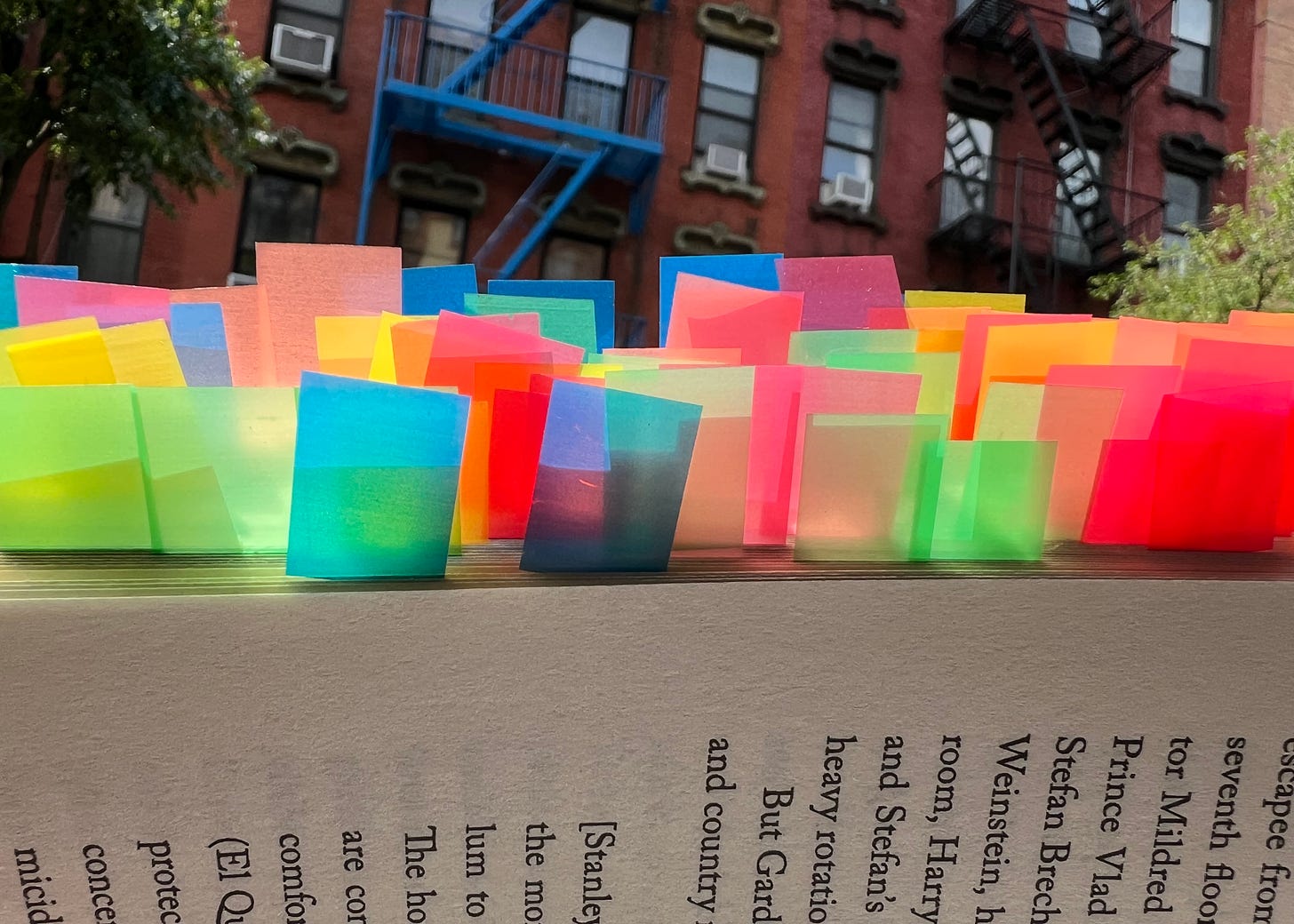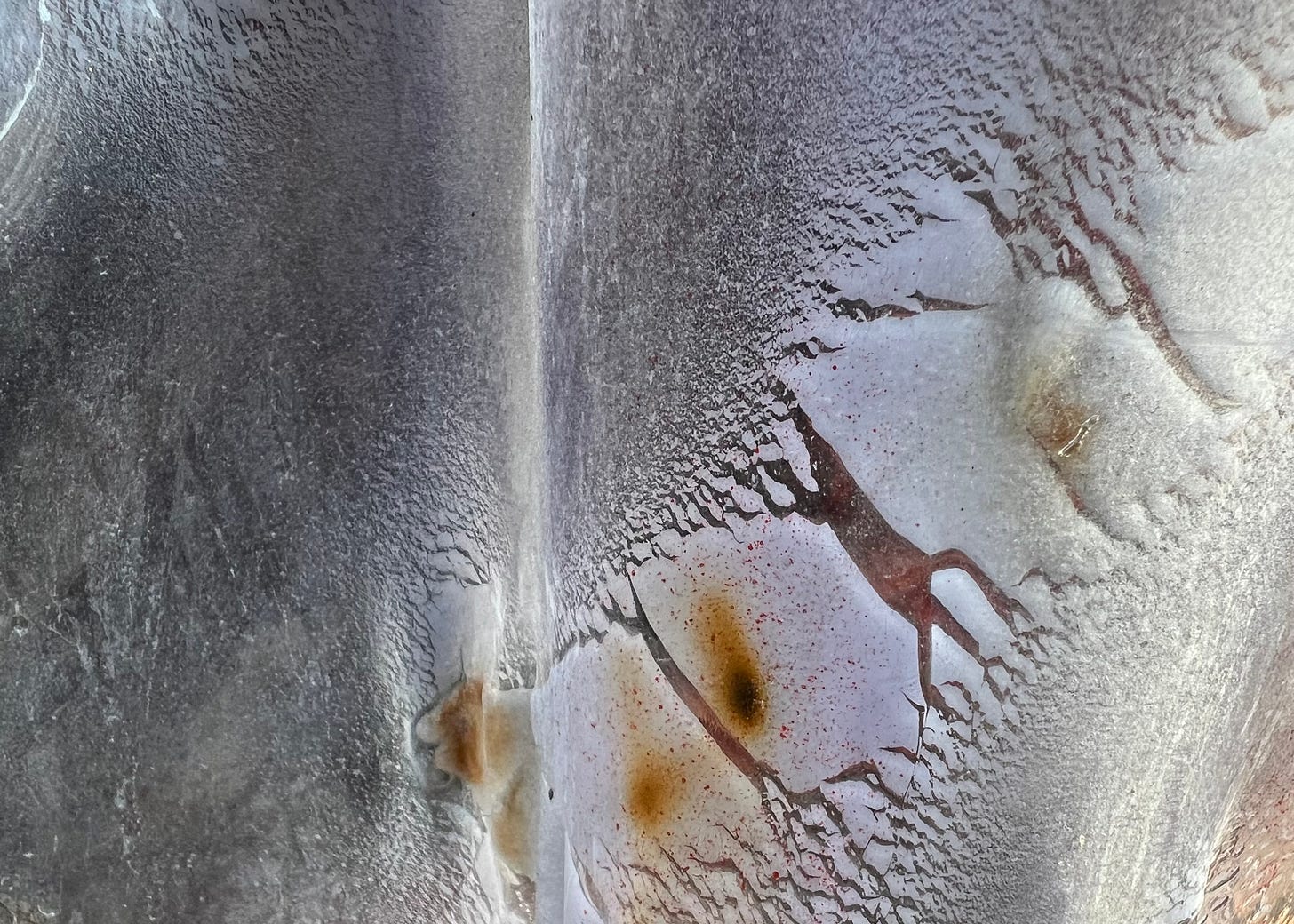June 28 2023
An Agnes Callard essay on travel has been recently mocked online, because that’s what the discourse is and does. Her point, to slightly reduce an already reductive point, is that people don’t change on travel because they just engage in “locomotion” and go from tourist site to tourist site, returning home unchanged and unenlightened. Callard writes that, on her first trip to Paris, she “walked from one end of the city to the other, over and over again, in a straight line; if you plotted my walks on a map, they would have formed a giant asterisk.” If you think I am about to join the mocking, you are mistaken. Join the questioning? Yes.
As my analyst Leon loves to say, “When people tell you about you, 95% of that is about them. So is the other 5%.” I have never walked a giant asterisk in Paris, though I love walking and walking alone. Who might describe that kind of obsessive shape with their feet? Callard has written openly about her neurodivergent status (that link is a 2020 op-ed in the New York Times) and she hates the idea of embodying victimhood, so it seems fair to bring her tendencies into play, especially in light of what she said in that op-ed about writing it in the first place: “There is a reason for all of this, which is that I am bad — really bad, you cannot imagine how bad — at figuring things out on my own.”
Callard’s approach to being in Paris does not seem to include talking to the people of Paris though she interacts with them, in her way. “During my Paris wanderings, I would stare at people, intently inspecting their clothing, their demeanor, their interactions. I was trying to see the Frenchness in the French people around me. This is not a way to make friends.” You see where I am going and it is absolutely not to find fault with Callard’s essay. I like her blunt and blocky writing and I think she is absolutely correct about the ways in which so many approach travel. That subset of travelers is almost certainly wealthy and white, though neither of those words come up in Callard’s essay (which is another way of bringing them up).
There are hundreds of ways to travel around the world without lapsing into tourism, a possibility Callard doesn’t entertain. But I get it—she’s dealing with a certain kind of “vacation” travel and I think her take is valid when she suggests that millions of people do their fifteen seconds at the Mona Lisa, post it to grid, and then zoom home. She’s not wrong! And I love the bit about the couple who needs an ethnologist they know to validate a travel encounter. Or rather, I don’t love what she says but I love what that example might open up, taken further.
Here is where her “figuring things out” comes into play. That story about the couple and the ethnologist is from an essay by Walker Percy, not Callard’s own experience. And some of Callard’s strongest travel haterade is delivered by quoting Fernando Pessoa, a Portuguese writer I know much better than I know Callard. Despite my affection for Pessoa (which has waned in recent years), I am duty-bound to point out he was an alcoholic shut-in who could barely maintain friendships and never found a stable romantic pairing, not even once. (His sole “romance” was vestigial, by his own telling.) Quoting Pessoa on travel means you are using a secondhand report from someone without any firsthand knowledge. It is like quoting Tintin’s thoughts on the moon.
I don’t think Callard has gone to the right sources, if figuring things out is really the task here. The people to talk to are the ones she’s staring at—the people who live there. Talk, maybe even listen, and travel just becomes living somewhere else.
In the spirit of celebrating living and talking today, a few example of conversations between people that delight me down to my bones. Go to this link provided by The Wire and you will get access to both parts of a very long conversation between David Keenan and the recently departed Peter Brötzmann, as big and important figure as free jazz and improvisation has ever known. I was insanely lucky that my very first free music concert was a duo between Brötzmann and Han Bennink, presented by John Corbett at Brown University in 1986. Even if you know this field, or this interview, read it again or read it for the first time. It drips life.
Ian Penman and Sarah Nicole Prickett in conversation is all I need to say. Two masters in an apartment, talking about Fassbinder, sure, but the filmmaker is just a pretext to listen to genuinely energetic thinkers play volleyball.
This Paris Review piece from 1994 about the late Bob Gottlieb and editing is a kind of fire sale on conversation. For no money, you get to read Gottlieb and his favorite authors—Toni Morrison, Robert Caro, John Le Carré, no big deal—talk about editing and writing and Gottlieb. Not the same as Turn Every Page, and not as charming but, in some ways, richer.








